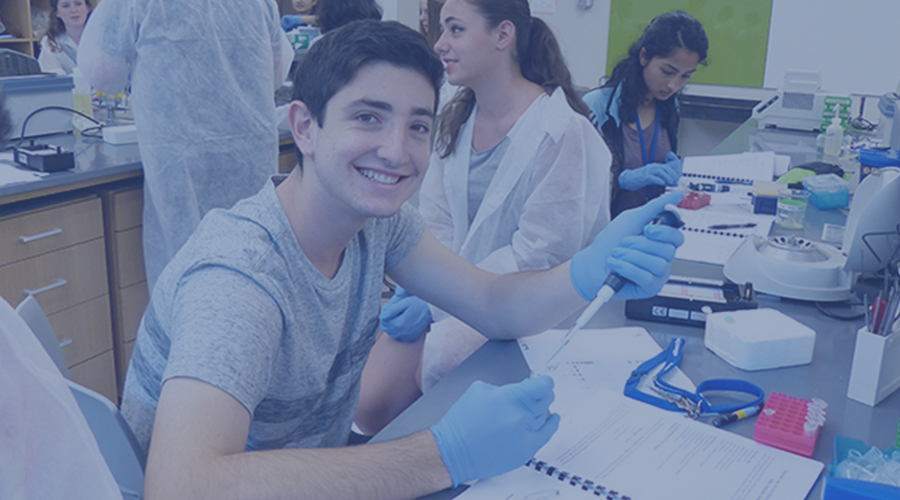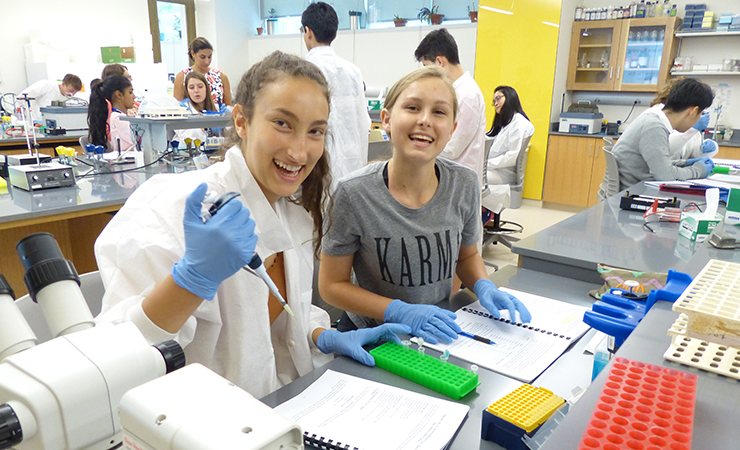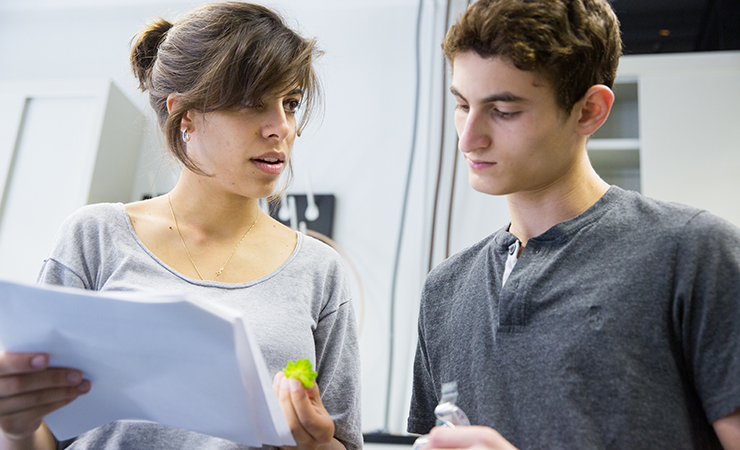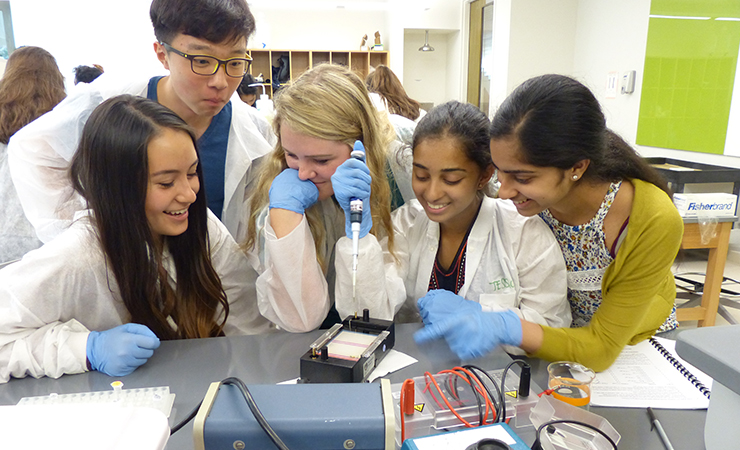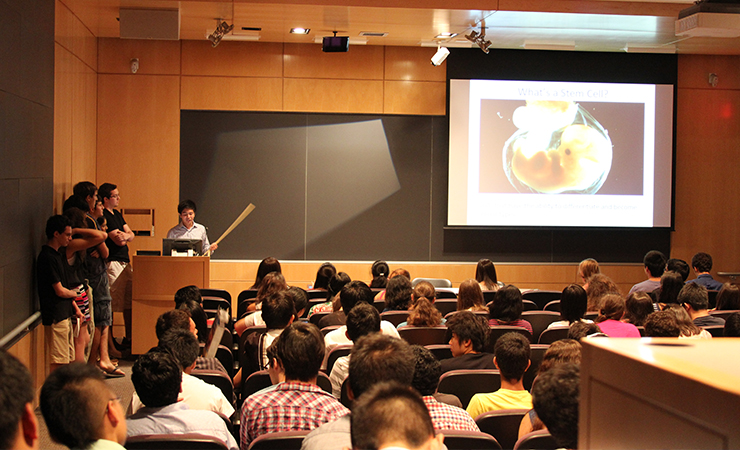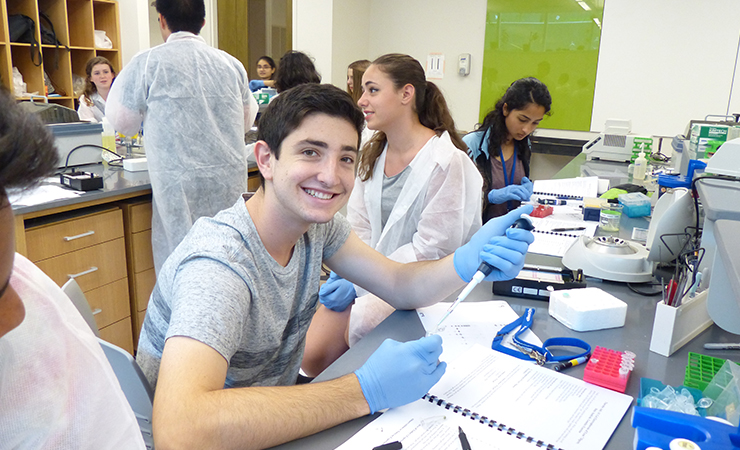Program dates: July 11 - August 1, 2026
-
Move-in: July 11
-
Orientation: July 12
- Move-out: August 1
The Biomedical Research Academy introduces the experimental basis of cellular, molecular, and genetic aspects of biology, focusing on relevance to diseases. Fusing daily lectures, faculty research talks, laboratory experiments, and small group investigations into current research topics, students gain insight into the core of biomedical research. The Biomedical Research Academy is fully residential with no commuter or online options.
Features
Lectures: Daily morning lectures start at 9 a.m. and are delivered by program directors and featured guest lecturers. Guest lecturers include scientists, clinicians, and faculty from the Department of Biology and Penn's School of Medicine. Topics covered change each year with guest lecturers participating in the academy. Frequently covered topics include genome sequencing, CRISPR/Cas-9, vaccine research, antibiotic resistance, bioethics, and much more. Penn researchers present recent discoveries made in their labs here on campus.
Journal club: Students are placed into small groups to discuss peer-reviewed research articles each day. Under the guidance of a Penn researcher or faculty member, students learn how to read, interpret, analyze, and critique primary research. Students will present the articles they covered in journal clubs to their peers at the end of the academy.
Wet lab: For 9 of the 13 daily laboratory sessions, students will be in "wet lab" performing hands-on molecular biology experiments in the same labs used for undergraduate courses. Using techniques such as PCR, gel electrophoresis, restriction analysis, bacterial transformation, and ELISA, students will determine their blood type, investigate gene expression in bacteria, and analyze a mock disease outbreak.
Computational lab: For 4 of the 13 daily laboratory sessions, students will be in a "computational lab" where students dive into the exciting intersection of biology and computer science to uncover hidden stories within DNA. Using Python, they’ll learn how to analyze real biological data to identify patterns, interpret results, and draw meaningful scientific conclusions. They’ll see how bioinformatics drives discoveries in areas like cancer research, infectious disease tracking, and personalized medicine. No prior programming experience is required.
Download: 2025 Syllabus (PDF)
Prerequisites
- One year of high school biology completed before the program begins
- One year of high school chemistry is strongly advised before the program begins
- For any students who will be using the high school course Living Earth or Living Environment as their one year of biology prerequisite, please include the course description with your transcripts for the admissions committee to review
- If you are currently enrolled in the prerequisite course(s), please submit your school report card or unofficial transcript showing at least one marking period, quarter, or semester, with your first and last name clearly visible, along with your application
Technology Statement
Students are required to bring their laptops or tablets to the program for in-class work and must have administrative access to make changes to the computer system and install applications.

Program Co-Director: Kieran Dilks
Dr. Kieran Dilks teaches high school in Haddonfield, New Jersey and is a part-time biology instructor at the University of Pennsylvania. He loves the subject matter and is passionate about inspiring and teaching the next generation of biomedical researchers. Dr. Dilks earned his PhD from the University of Pennsylvania in 2006, worked as a postdoctoral researcher at Princeton University from 2006-2007, and has been teaching at high school and university ever since.

Program Co-Director: Ryan Dilks
Ryan Dilks, who serves as the program co-director, is a Rutgers University graduate with a background in general science. He is dedicated to continually refining his cram of teaching, evident by him earning a master's degree in teaching and learning in 2003 along with various other graduate-level education classes. Since 1997, he has passionately inspired his students at Cherokee High School to develop a similar love of science. His teaching philosophy centers around challenging young minds and fostering a self-belief in his pupils that they are able to accomplish more than they had ever imagined. Beyond academia, Mr. Dilks is driven by a profound love for nature, travel and the new experiences that it brings, and family.
